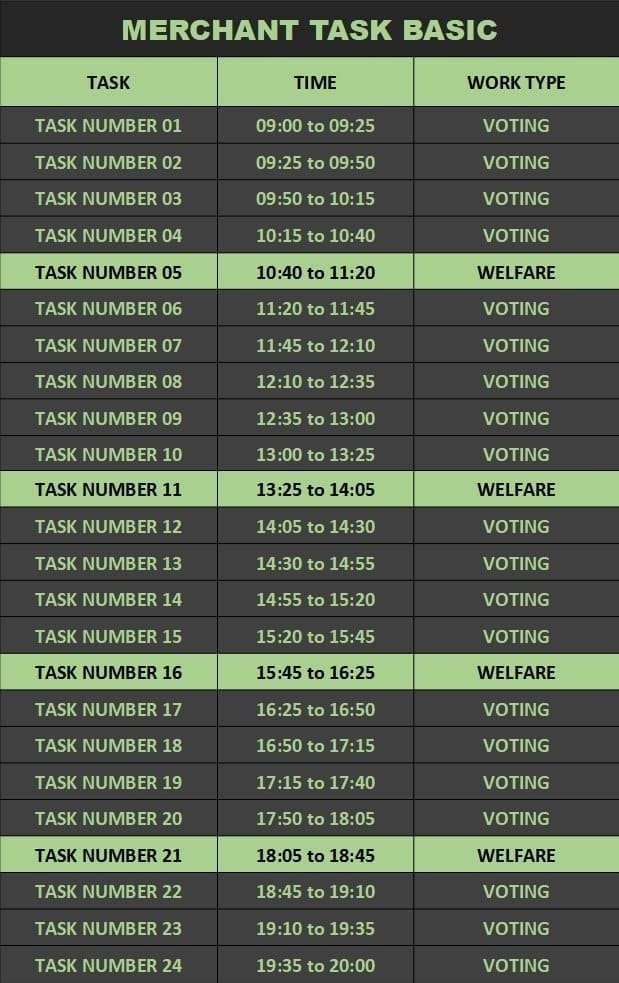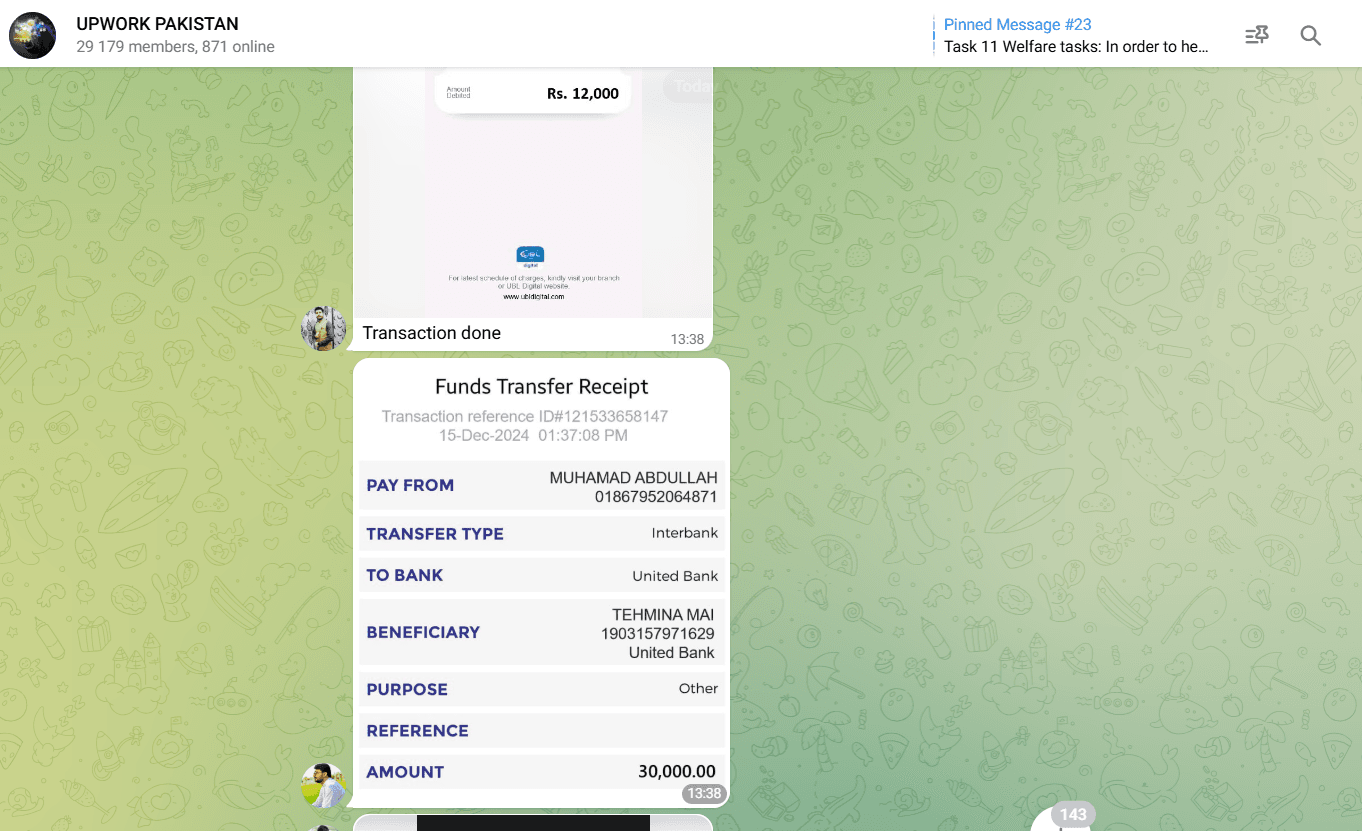Scam Alert in Pakistan: UPWORK PAKISTAN WhatsApp and Telegram Frauds
Pakistan is facing a surge in a highly organized and well-executed scam that targets employed individuals, unemployed job seekers, and students. This scam exploits the increasing popularity of remote work and capitalizes on people’s desire to earn money from home. Here’s how the scam unfolds:
Step 1: Initial Contact via WhatsApp
Scammers initiate contact through WhatsApp messages, posing as employees of a reputed company like “Upwork Pakistan.” They often use enticing job offers that promise significant daily earnings without any upfront fees or registration costs. A typical message reads:
“Hello, This is Fatima Sara, the Marketing Head of Upwork Company. We have a vacancy in our work-from-home department. You can earn PKR 1500–4500 daily. Can I explain the job details?”
The scammers then introduce a “test assignment” to build credibility. They ask victims to complete simple tasks, such as subscribing to a YouTube channel like “Sajal’s Art,” and promise payment upon completion.

Once the victim submits proof of task completion, they are informed about receiving payment. This creates an illusion of legitimacy.
Step 2: Moving the Victim to Telegram

After the “successful” test assignment, the scammers guide the victim to a Telegram group, which they describe as the official merchant task group. The victim is warned not to message in the group and is given instructions to join using specific links and usernames.
The Telegram group includes fake participants who pretend to be successful workers, sharing their supposed earnings to further convince victims of the legitimacy of the operation.

Step 3: Introducing the Welfare Task – The Real Scam
The scammers then introduce a “welfare task” involving cryptocurrency speculation. Victims are asked to deposit money, promising high returns within minutes. They present seemingly attractive investment options such as:
- PKR 4,000 gets PKR 5,600
- PKR 30,000 gets PKR 42,000
- PKR 200,000 gets PKR 280,000
To lure victims further, the Telegram group is filled with fake success stories and screenshots of people receiving their profits. These are fabricated to manipulate victims into trusting the process and investing their money.


Step 4: The Trap Closes
Once a victim deposits money, the scammers either:
- Demand further payments to “unlock” larger profits.
- Block the victim entirely, cutting off all communication.
Victims end up losing their hard-earned money with no way to recover it.

How to Protect Yourself from This Scam
- Verify Credentials: Always verify the identity of the person or company contacting you. Official companies like Upwork will not approach individuals through WhatsApp or Telegram for job offers.
- Beware of Too-Good-To-Be-True Offers: Offers that promise high earnings with little effort or investment are usually scams.
- Avoid Sharing Sensitive Information: Never share personal details, bank account information, or screenshots with unknown individuals.
- Research the Opportunity: Search online for reviews or complaints about the job offer or the company. Chances are, others have already flagged such scams.
- Do Not Join Suspicious Groups: Telegram and WhatsApp groups filled with “success stories” are often fabricated to build trust.
Call to Action
This scam is a reminder of the importance of staying vigilant and spreading awareness. If you or someone you know encounters such fraudulent schemes:
- Report the incident to local cybercrime authorities.
- Warn others through social media to prevent further victimization.
- Educate yourself about common online scams.
Conclusion
The sophistication of this scam highlights the need for greater awareness and stricter regulatory action. By sharing this information, you can help protect others from falling into the trap of these fraudsters. Stay informed, stay cautious, and always question offers that seem too good to be true.
Note:
The LinkedIn article by Himanshu Yadav discusses the “Telegram Prepaid Task” scam, where victims are promised high returns through seemingly simple online tasks. Scammers pose as representatives of reputable companies, initially offering small payments to build trust. Later, they demand larger deposits under the guise of “investment tasks” with promised returns. Victims are misled into investing significant amounts and ultimately lose their money when the scammers vanish. The article highlights the need for awareness and caution against such fraudulent schemes.
Read more here.



